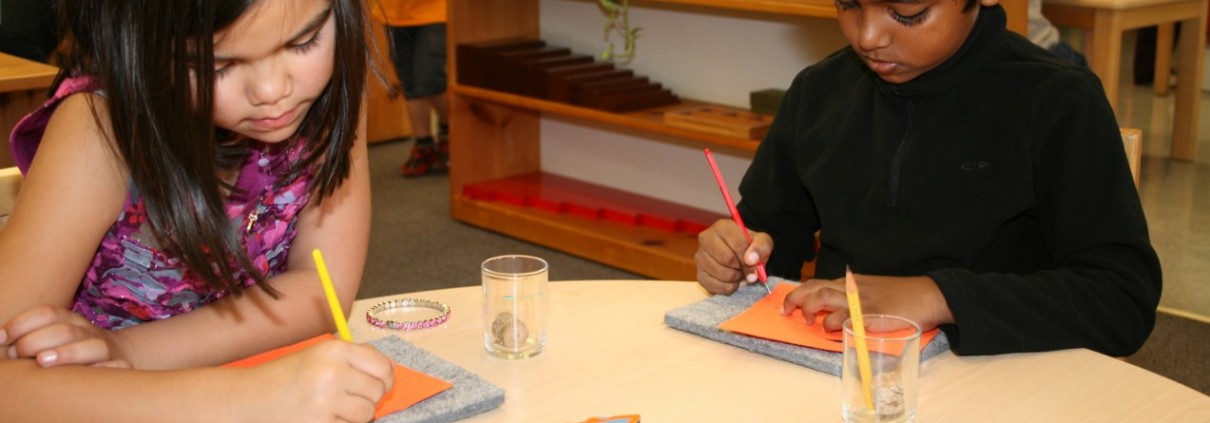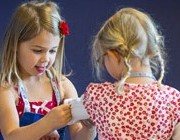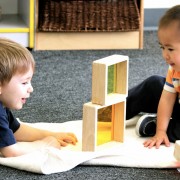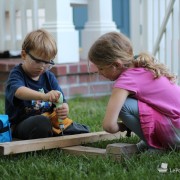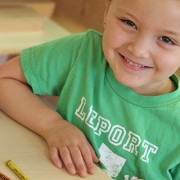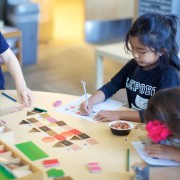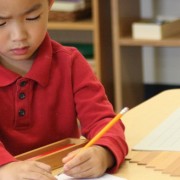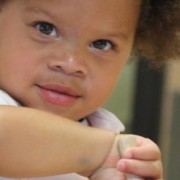Transitioning to Montessori: Motor Skills and Indirect Preparation (Part 3 of 5)
Every fall, children transition to our Montessori programs from other preschools or elementary schools. What can parents do to help with this transition? In this series of blog posts, we lay out a few Montessori principles that apply at the later preschool and early elementary school level. Our focus is on children who transition into Montessori during their kindergarten through 2nd grade years, but many of the ideas suggested here are helpful for preschool children, too.
“Watching a child makes it obvious that the development of his mind comes through his movements.”
“Since it is through movement that the will realizes itself, we should assist a child in his attempts to put his will into act.”
— Dr. Maria Montessori
In a Montessori preschool program, we emphasize motor development as an essential component of education. The hand is the tool of the mind, said Dr. Montessori, so any activity that is to hold the child’s attention has to be one where his whole personality, mind and body, are engaged harmoniously. The child has a need to integrate thought with action, observation with movement, mind with body.
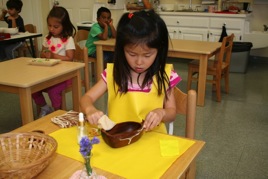
Montessori preschool children have many opportunities to work on activities that make this integration possible. Indeed, the entire Montessori preschool class abounds with examples of “hand-mind” engagement—activities so deeply satisfying to students that they will do them quietly, focused, for up to an hour at a time.
Observe in a Montessori preschool class, and you may find a 3-year-old pouring water from one container to another for 20 minutes, or a 4-year-old carefully using the metal insets to create art work, or a 5-year-old writing elaborate stories with the moveable alphabet. The environment is a vista of different children engaged in different explorations, acquiring knowledge by acting purposefully in their environment.
These children are accomplishing something very important. They are extending their attention span. They are refining their gross and fine motor skills. They are following logical sequences of events. They are problem solving. This inner cognitive growth occurs in leaps and bounds because it is connected with the child’s need to move and engage in self-generated action. The opportunity to repeatedly use the mind to guide the hand is what prepares them to jump in and fully explore the exciting materials in the Montessori elementary classroom.
For children who join Montessori for kindergarten or elementary school, parents can help by providing similar mind-body integrated activities at home.
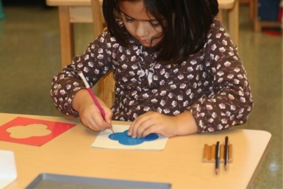
- Get your child involved in kitchen activities. Dicing vegetables fosters motor control and can easily take 20-30 minutes. Peeling eggs strengthen muscles. Scooping flour and measuring sugar to just a level table spoon require concentration and motor control. Now is a good time, too, to teach children how to make their own school lunches!
- Provide him with crafts activities that help with fine motor skills. Mandela drawing tools or stencils can replicate some of the skills practiced with Metal Insets in a Montessori primary class. Stringing small beads can help with the three-finger grip and concentration skills. Tracing and coloring in figures (like animals in this book) are also wonderful activities, as are crafts tasks that require a child to use scissors carefully or glue small pieces of paper or other things to make art work.
- Get outside and work on gross motor skills. Learning to ride a bike without training wheels fosters both self-confidence and balance (a balance bike is a great tool – read more here.) Find a balance beam. Join a gymnastics or dance class. Throw balls with each other. These may not sound like academic activities, but children who can’t confidently control their bodies are at a clear disadvantage in class!
These mind-body activities, rather than a focus on academic work, is a better use of the summer months leading up to your child’s start in the Montessori kindergarten or elementary class!
Read more in our Transitioning to Montessori blog series:
- Transitioning to Montessori: Independence (Part 1 of 5)
- Transitioning to Montessori: Freedom with Limits (Part 2 of 5)
- Transitioning to Montessori: Motor Skills and Indirect Preparation (Part 3 of 5)
- Transitioning to Montessori: The Follow the Child Principle (Part 4 of 5)
- Transitioning to Montessori: The Prepared Environment (Part 5 of 5)

